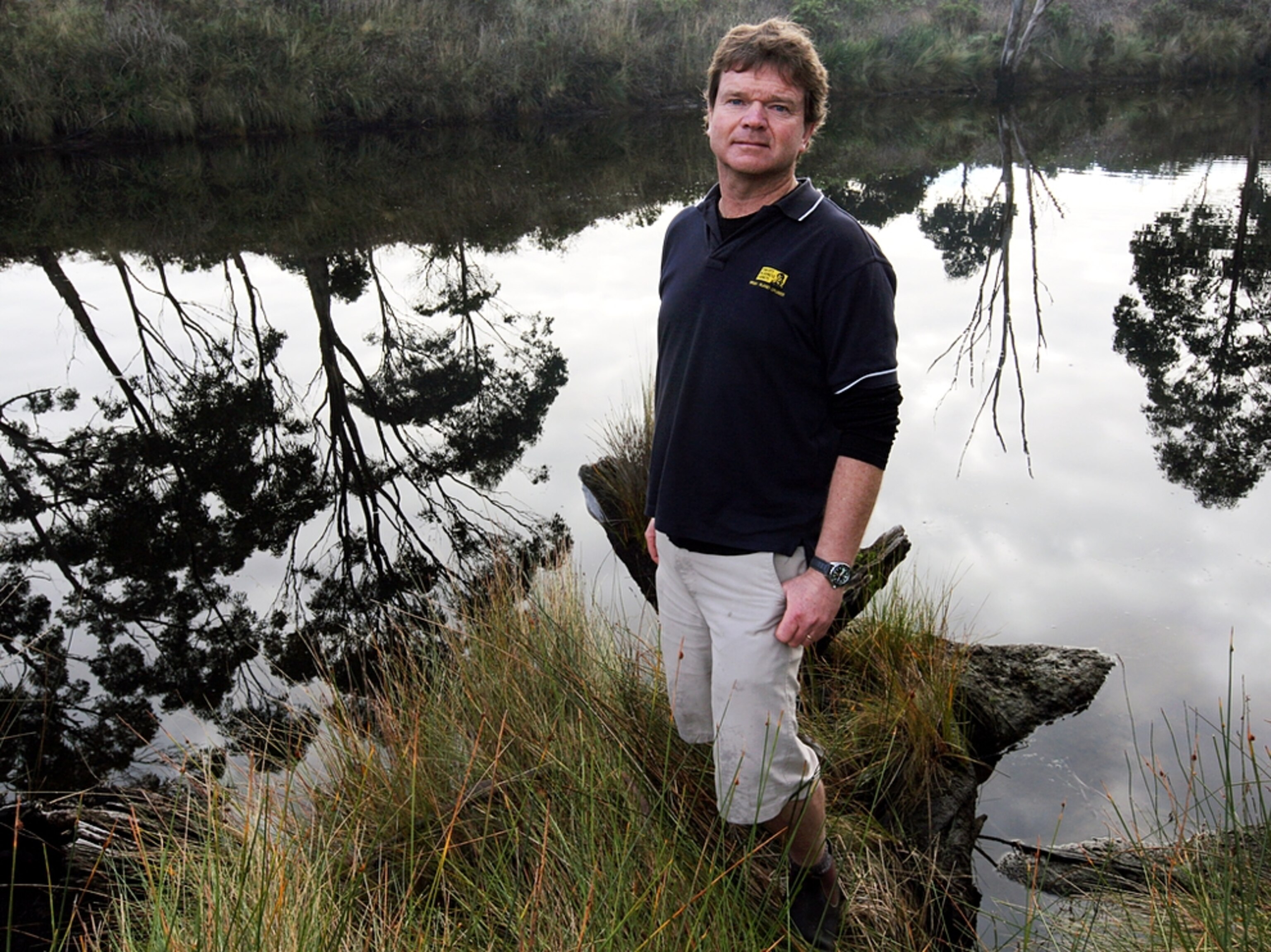
Traveler of the Year: Robert Pennicott
This Tasmanian rebel with a cause circumnavigated Australia in a dinghy to raise money (and awareness) for conservation and polio eradication.
Deep sea caves, towering cliffs, migrating whales: Tasmania’s rugged beauty sets the perfect stage for ecotourism and creates the ideal platform for philanthropy, as one fearless fund-raiser sees it.
Tour operator Robert Pennicott is proud of his custom-built yellow boats, which ply the pristine waters of Bruny and Tasman Islands. But the 47-year-old former fisherman is prouder still of the coastal conservation fund he co-founded in 2007; in its first year, it saved some 50,000 seabirds from the depredations of feral cats. That initial success turned the founder of Pennicott Wilderness Journeys into a daringly innovative philanthropist.
In 2011, he launched a charitable foundation and led the first-ever circumnavigation of Australia by rubber dinghy to raise money for conservation and polio eradication. The journey took 101 days, raised nearly $300,000 for polio vaccinations, and proved that clever risks can produce great rewards.
“When I die, I want to have made a difference in the world,” says Pennicott, who dedicates at least a quarter (and up to 85 percent, some years) of his annual profits to conservation and humanitarian issues.
—By George W. Stone
THE INTERVIEW
National Geographic Traveler: Why is travel important?
Robert Pennicott: Travel lets us experience the world. It lets us discover new places, try new things, and experience different cultures. Thank goodness the world isn’t flat!
NGT: Can you point to one trip or experience that ignited your curiosity about the world?
RP: The day Neil Armstrong stepped on the moon.
NGT: What inspired you to travel in the way that has resulted in your being chosen as a Traveler of the Year?
RP: When I die I want to have made a difference to the world. I chose to use travel as a way to bring attention to the global fight to eradicate polio because I knew I could capture people’s imaginations. During my 101-day and 12,000-mile journey around Australia I maintained a daily video blog, which allowed people to follow me every step of the way.
NGT: Who is your hero and why?
RP: Sir Edmund Hillary, the first person to conquer Mount Everest. It was such a feat of bravery and human achievement.
NGT: Do you have a personal motto or mantra that embodies your approach to life and travel?
RP: Live your dreams and don’t take no for an answer. Anything is possible; the hardest part is starting.
NGT: What do you never leave home without when you travel?
RP: A photo of my family: my wife, Michaye; my three children, Georgina, Mia, and Noah; and Splash the wonder dog.
NGT: Do you have a favorite travel book or film?
RP: The 1937 film Captains Courageous. I remember crying my eyes out, I guess it’s a little too close to my heart.
NGT: What was your most surprising food experience on your travels?
RP: Sitting in a 17-foot rubber dinghy, eating canned tuna while thousands of large tuna were leaping all around my ears, off the coast of the Kimberley on the northwest coast of Australia.
NGT: Who is the most memorable person you’ve met while traveling?
RP: I was absolutely humbled by the children I met in the Pacific Islands. Despite having very little material possessions they have endless energy and enthusiasm.
NGT: Name three places that you’d like to visit before you die and why.
RP: Antarctica for its remoteness, landscapes, and wildlife. The Amazon, to experience the heart of the rain forest and find a way to conserve and protect it. Russia—in the last few years there are a number of areas that have opened up to visitors, such as Kamchatka.
NGT: What's one place you’ve been to that you think everyone should visit?
RP: Tasmania. It’s a beautiful island known for its pristine wilderness, beautiful coastlines, fresh produce, fine wine, culture, and history. It’s my home, and I absolutely love it.
NGT: What’s next?
RP: I would like to visit Afghanistan, Pakistan, and Nigeria—the last three countries where polio remains endemic—to assist with frontline vaccination programs. I look forward to the day when polio is wiped out forever. It will be a good feeling to know I was a part of it.